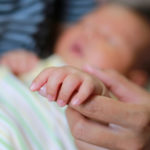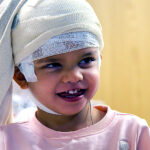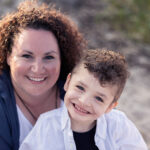Lessons from Emma: Mom shares how RNS has changed their lives
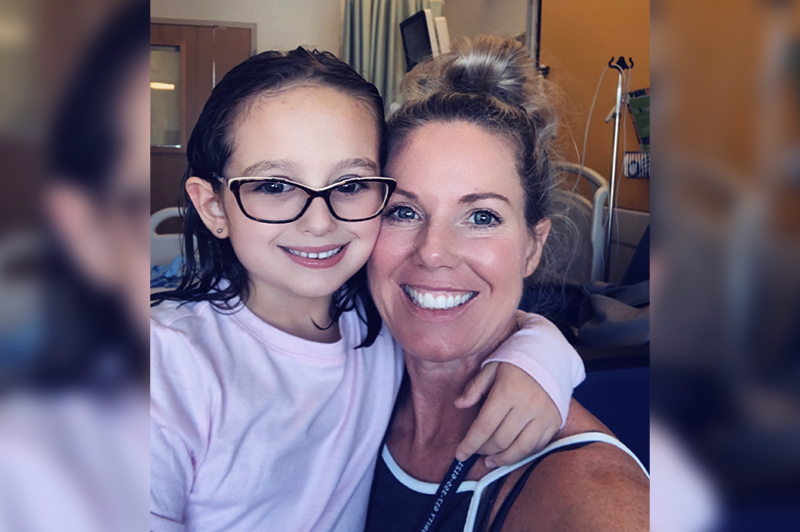
Emma’s journey with the Epilepsy Center at Boston Children’s Hospital began three years ago when she came to Boston Children’s with her parents for help managing her seizures. In Boston, Emma, Lynda, and Danny found answers to their questions, a (temporary) new home, and hope for Emma’s future as she embarked on responsive neurostimulation (RNS) — a pacemaker-like system that monitors and helps prevent seizures.
Today, Lynda looks back on their time in Boston as something that not only saved Emma’s life but also validated her own sense of urgency in advocating for her daughter. Here, she shares lessons learned from their experience.
1) Don’t back down
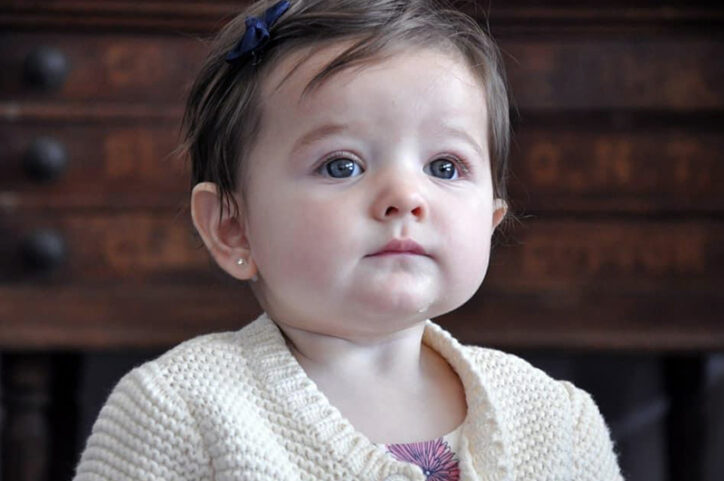
Within days of being born, Emma experienced a stroke that caused a brain injury due to hyperinsulinism caused by an insulinoma related to pancreas-specific Beckwith-Weidemann syndrome. She was also diagnosed with mosaic trisomy 12. In infancy, she began having seizures related to the stroke. When Emma was 2, her seizures stopped responding to medication and grew increasingly severe.
“We were told that she would never recognize us and that she wouldn’t develop past the age of five emotionally, developmentally, or socially,” Lynda recalls. “We were in a very scary place.”
As a nurse, Lynda had the unique perspective of understanding the severity of Emma’s situation and knowing how to advocate for her. When Emma’s initial care team suggested the possibility of putting her into a medically induced coma to give her brain an opportunity to rest, she and Danny refused.
“My statement to them was my daughter deserves a quality of life,” Lynda says. “Not just to live, but for her to enjoy life.”
Lynda admits that before coming to Boston Children’s, her advocacy for Emma sometimes complicated her relationship with Emma’s providers.
“I was very persistent and very convicted in exactly what I expected for my daughter’s future,” Lynda says.
She began looking into other pediatric epilepsy centers and found the Epilepsy Center at Boston Children’s and their work in RNS. She called the Second Opinion Program, and within weeks, she, Emma, and Danny were meeting with the Epilepsy Center team, where Lynda says that she and her family were met with compassion, empathy, and understanding.
“When we walked into Boston Children’s, it was crystal clear that the staff and the physicians understood exactly what we needed as a family and what Emma needed as a patient,” she says. “The answer was always ‘we see you; we hear you; we’re going to do this together.’”
2) Trust the process
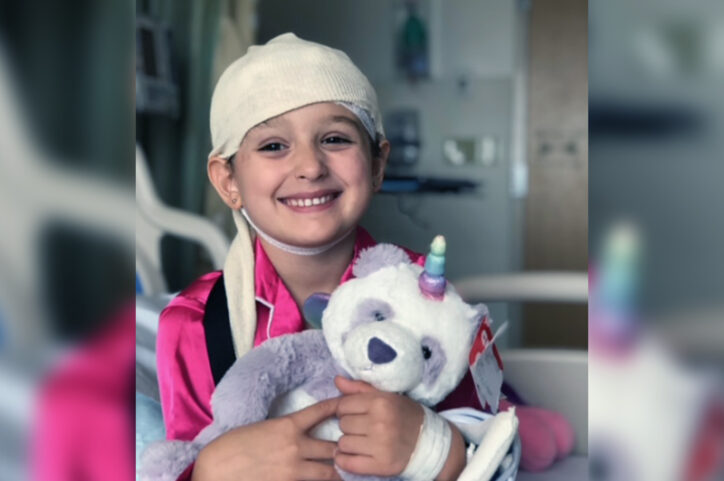
Through thorough evaluations, the team determined that Emma was a candidate for RNS. The treatment would involve surgical placement of a stimulator device and careful testing and monitoring afterward under the supervision of Dr. Melissa Tsuboyama, director of the neuromodulation program.
RNS requires a careful balance of detecting seizure activity and stimulation to alleviate it.
“It’s sort of like the Goldilocks principle,” says Dr. Tsuboyama. “We don’t want the detection settings so strict that they miss seizures, but we don’t want a setting that’s so encompassing that it’s going to constantly be picking up on brain activity that may not be seizure related.”
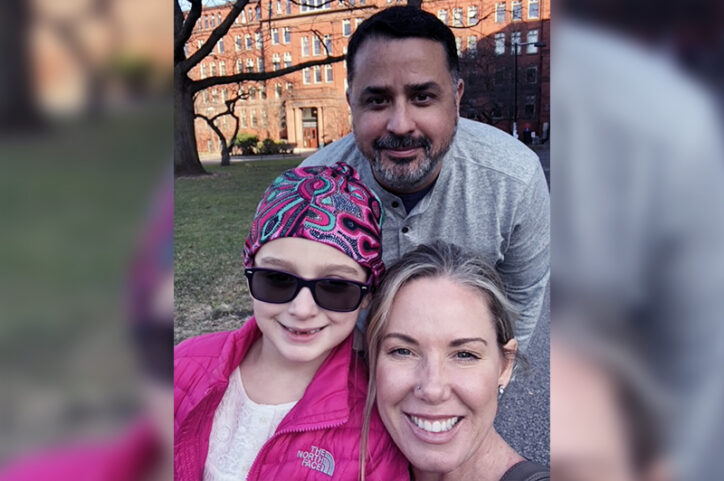
Once the team finds the specific pattern of seizure activity they’re looking for, they activate the implanted device to deliver electrical stimulation when it detects such activity. Because getting to this point takes precision and, therefore, time, Lynda, Danny, and Emma relocated to Boston while she underwent testing and then placement of the RNS device. Moving hundreds of miles from home was hard for the family, yet Lynda and Danny felt nothing but love and support in their new, albeit temporary, home. “The people of Boston just really wrapped their arms around us,” Lynda says. “There’s a very, very, very special community there and I don’t think my husband and I will ever forget how we were treated.”
3) Stay focused on a happy childhood
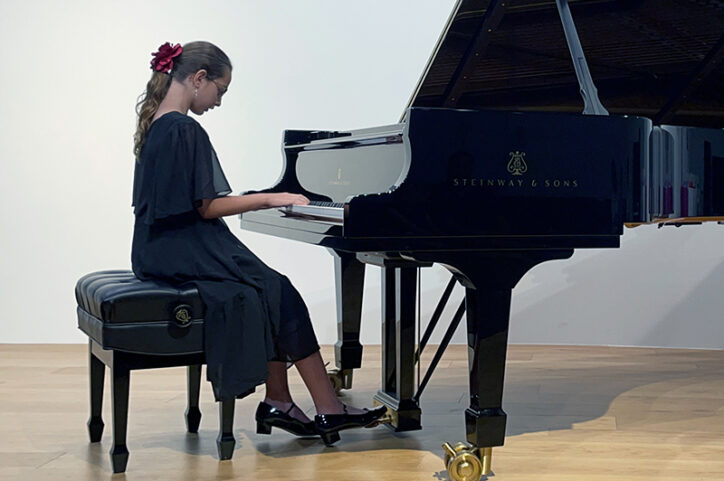
Today — on the heels of her 11th birthday — Emma is absent of clinical (observable) seizures. While she does experience some seizure activity in her sleep, the lack of debilitating episodes has given Emma the childhood Lynda and Danny fought so hard for.
“She’s doing phenomenal,” Lynda says. “She has excelled in math and has developed a deep love of music, including piano, cello, and voice.”
“Not only did Boston Children’s save her life,” Lynda says. “They brought to fruition the type of life that I imagined my daughter having.”
Learn more about the Epilepsy Center at Boston Children’s Hospital.
Related Posts :
-

Fighting for answers: Innovative approach to epilepsy helps Emma thrive
As a nurse, Lynda Coto was used to solving problems — until she was faced with her own daughter’s ...
-

A promising new antiseizure drug tailored to newborns
Neonatal seizures can lead to serious consequences, including significant cognitive and motor disabilities, lifelong epilepsy, and death. They are ...
-

A family’s search for answers and hope for PACS1 syndrome
Alya, 9, was about three weeks old when her mother, Taruna, noticed movements and behaviors she was concerned might be ...
-

Homecoming: Jack’s complex care brings a family back to Massachusetts
Georgia and her husband, Keith, moved to North Carolina from Massachusetts in 2015 with a dream of building a house and ...



